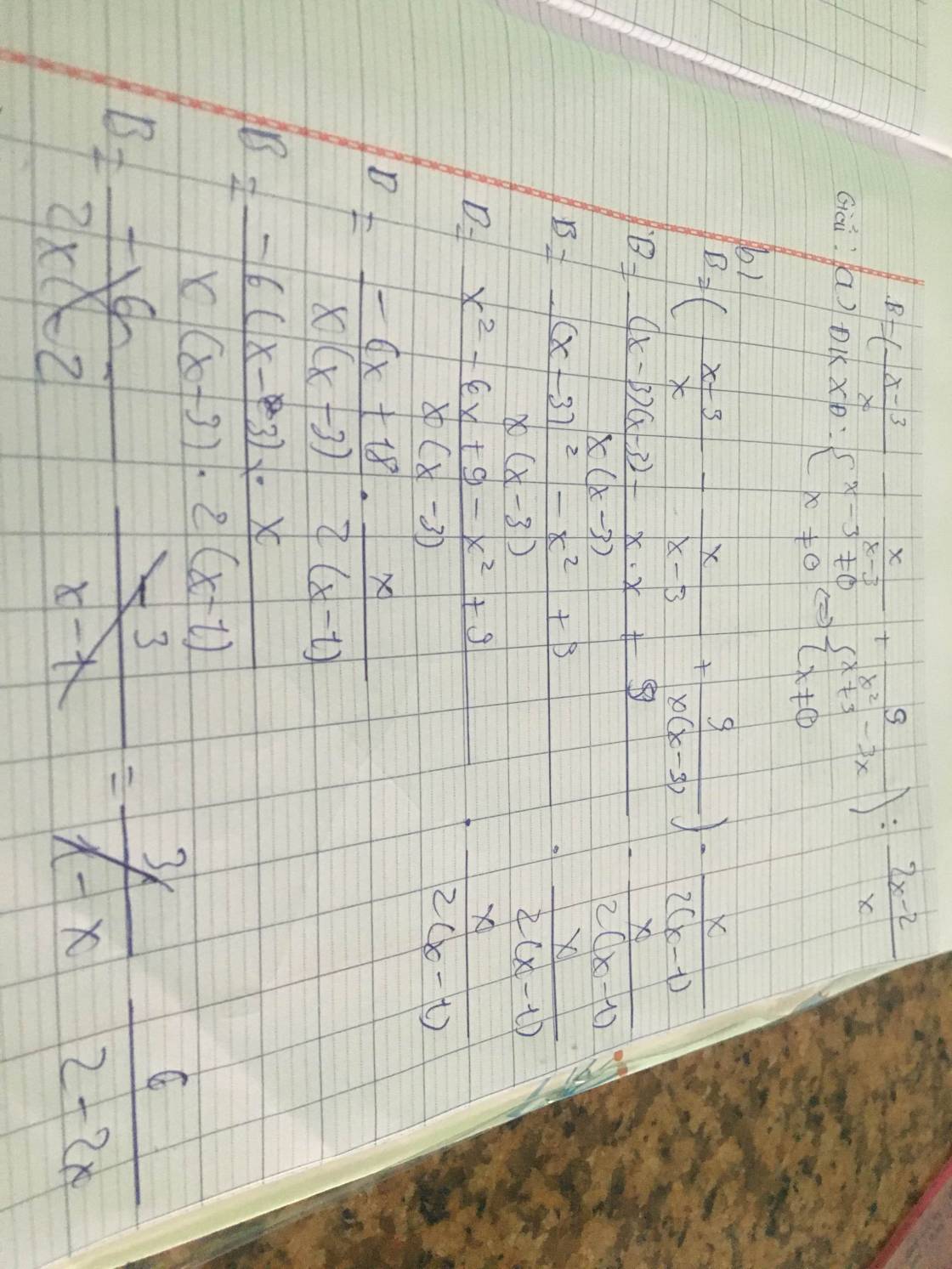tìm x sao cho giá trị của biểu thức 2- 3x-7/4 không âm
Hãy nhập câu hỏi của bạn vào đây, nếu là tài khoản VIP, bạn sẽ được ưu tiên trả lời.


a) C được xác định <=> x khác +- 2
b) Ta có : \(C=\dfrac{x^3}{\left(x-2\right)\left(x+2\right)}-\dfrac{x\left(x+2\right)}{\left(x-2\right)\left(x+2\right)}-\dfrac{2\left(x-2\right)}{\left(x-2\right)\left(x+2\right)}\)
\(=\dfrac{x^3-x^2-2x-2x+4}{\left(x-2\right)\left(x+2\right)}=\dfrac{x^2\left(x-1\right)-4\left(x-1\right)}{\left(x-2\right)\left(x+2\right)}=\dfrac{\left(x-1\right)\left(x-2\right)\left(x+2\right)}{\left(x-2\right)\left(x+2\right)}=x-1\)
Để C = 0 thì x - 1 = 0 <=> x = 1 (tm)
c) Để C nhận giá trị dương thì x - 1 > 0 <=> x > 1
Kết hợp với ĐK => Với x > 1 và x khác 2 thì C nhận giá trị dương

 c/
c/
Ta có : B=2=>6/2-2x
<=>6=4-4x
<=>6-4=-4x
<=>-4x=2
<=>x=2/-4=-1/2
d/ĐKXĐ:2-2x≠0
<=>2(1-x)≠0<=>-2(x-1)≠0
<=>x≠1
Để giá trị của biểu thức B nguyên thì 2-2x là Ư(6)
=>2-2x ∈ Ư(6)={±1;±2;±3;±6) Nếu 2-2x=1=> -2x=-1=>x=1/2( thoả mãng)
Rồi còn nhiêu bạn tự xét trường hợp y trang cách làm ở trênn nnhan :;)).À sẽ có mấy cái trường hợp nó giống ĐKXĐ thì bạn ghi trong ngoặc ko thoã mãn nhan.

ĐK: \(x\ne-\dfrac{2}{3};x\ne3\)
\(\dfrac{6x-1}{3x+2}=\dfrac{2x+5}{x-3}\Rightarrow\left(6x-1\right)\left(x-3\right)=\left(2x+5\right)\left(3x+2\right)\)
\(\Leftrightarrow6x^2-19x+3=6x^2+19x+10\Leftrightarrow38x=-7\Leftrightarrow x=-\dfrac{7}{38}\).
ĐKXĐ : x ≠ -2/3 ; x ≠ 3
\(\dfrac{6x-1}{3x+2}=\dfrac{2x+5}{x-3}\Rightarrow\left(6x-1\right)\left(x-3\right)=\left(3x+2\right)\left(2x+5\right)\)
\(\Leftrightarrow6x^2-19x+3=6x^2+19x+10\)
\(\Leftrightarrow-38x=7\Leftrightarrow x=-\dfrac{7}{38}\)(tm)
Vậy ...

\(A=139\)
\(\Leftrightarrow720:\left(x-6\right)=40\)
\(\Leftrightarrow x-6=18\)
hay x=24

a, ĐKXĐ: \(x\ne1;x\ne-1\)
b, Với \(x\ne1;x\ne-1\)
\(B=\left[\dfrac{x+1}{2\left(x-1\right)}+\dfrac{3}{\left(x-1\right)\left(x+1\right)}-\dfrac{x+3}{2\left(x+1\right)}\right]\cdot\dfrac{4\left(x^2-1\right)}{5}\\ =\left[\dfrac{x^2+2x+1+6-x^2-2x+3}{2\left(x-1\right)\left(x+1\right)}\right]\cdot\dfrac{4\left(x^2-1\right)}{5}\\ =\dfrac{5}{x^2-1}\cdot\dfrac{4\left(x^2-1\right)}{5}\\ =4\)
=> ĐPCM